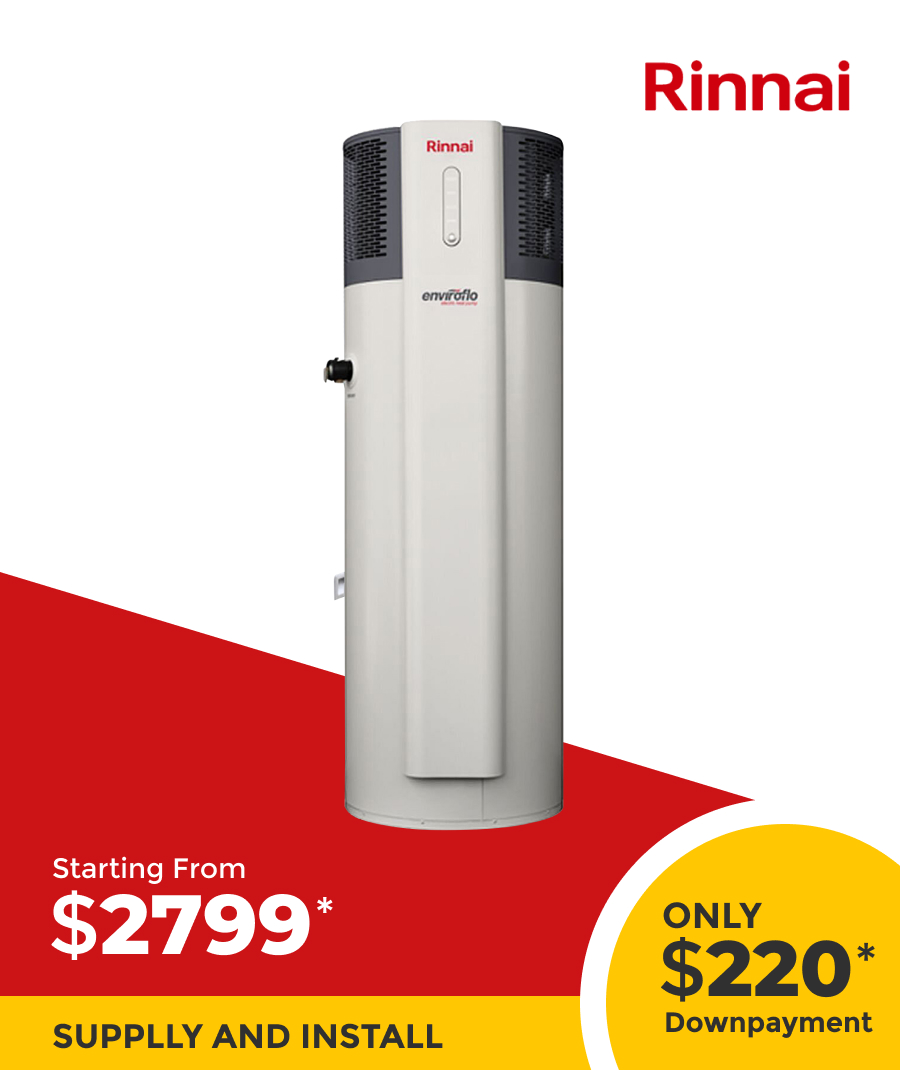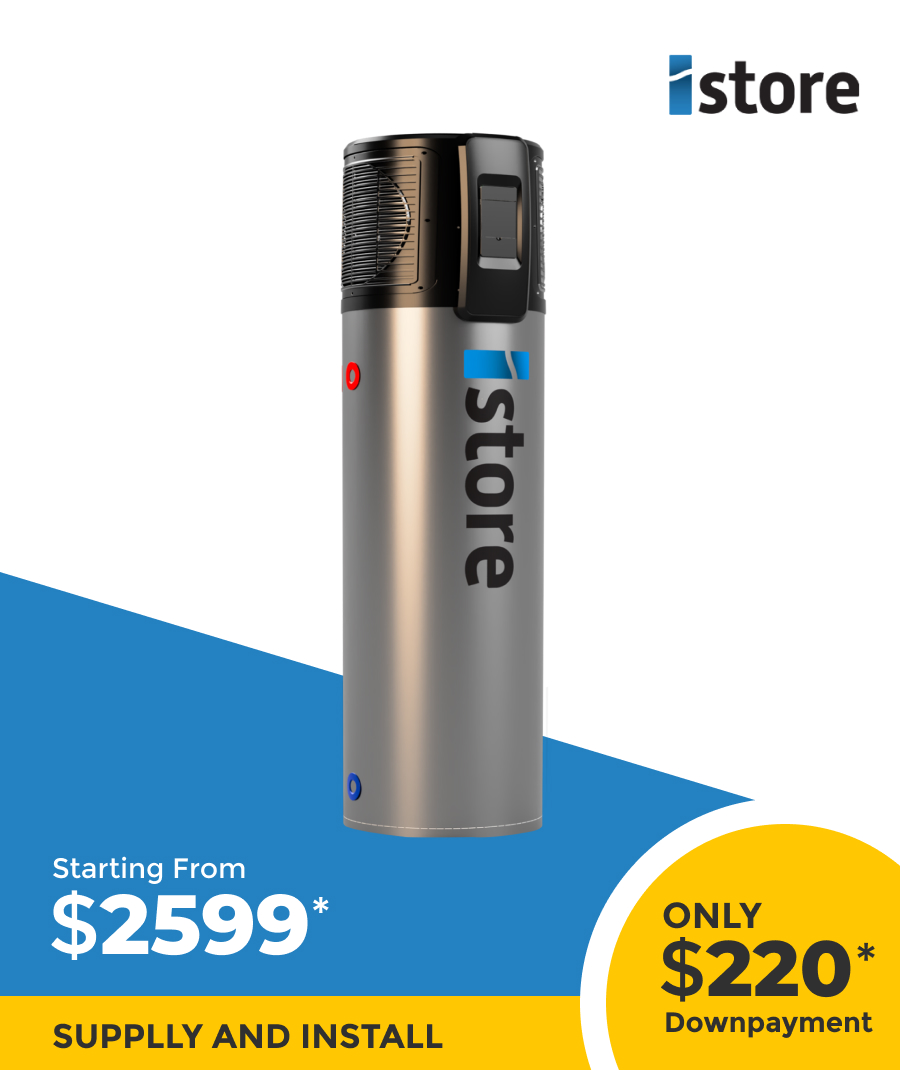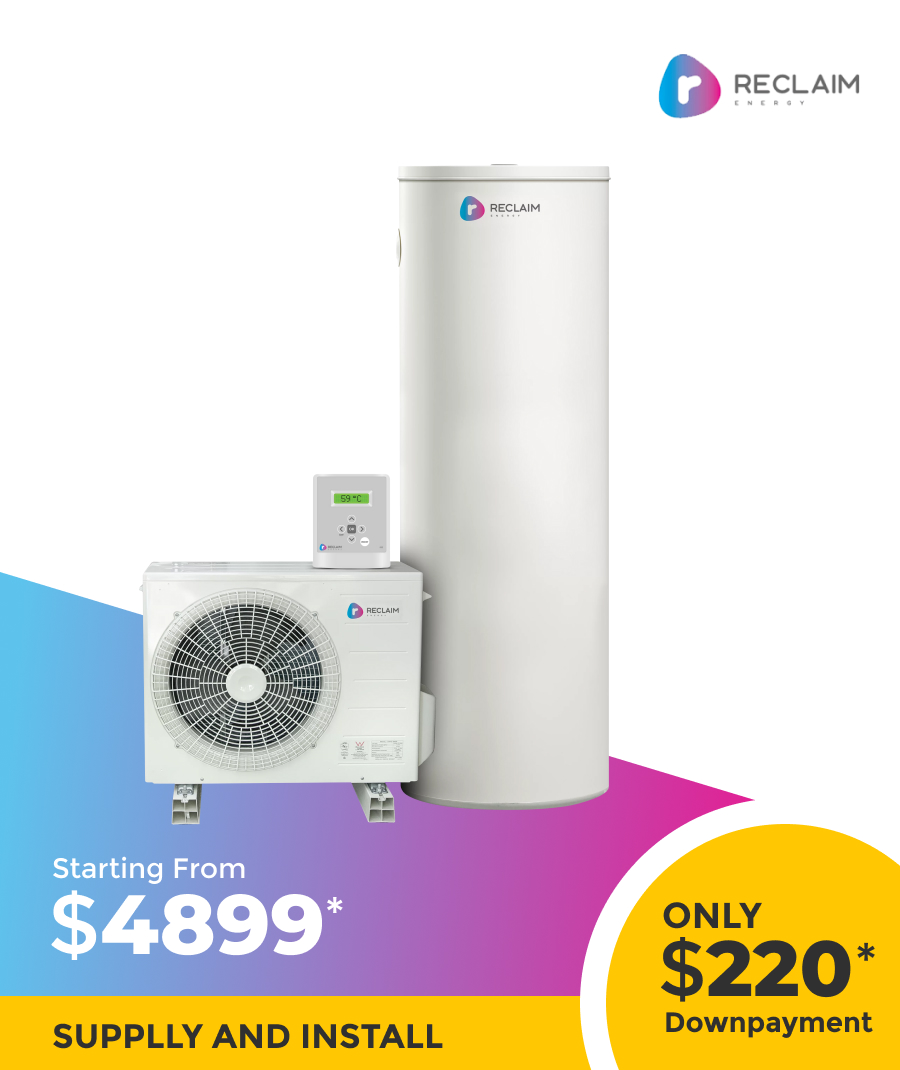Heat Pump Hot Water FAQs
How much energy and money can I save with a heat pump hot water system?
Sealed says a heat pump water heater could shrink energy use by up to 65% compared to regular electric ones, slashing your yearly electricity bill by hundreds. The precise savings hinge on factors like weather, water use, and power costs.
What are the best brands and models of heat pump hot water systems?
Heat pump water heaters come in myriad brands, models, features, sizes, and costs. Top respected brands encompass Rheem, Stiebel Eltron, A.O. Smith, GE, and Bosch.
How do I install and maintain a heat pump hot water system?
A heat pump water heater setup calls for specific plumbing and wiring expertise. You must also follow your area’s regulations. It might be necessary to hire an experienced contractor for ensuring safety and precision. For upkeep of this kind of water heater, frequent checking and cleaning of the air filter is required. You will also need to empty the tank and clear out the heat exchanger. Always abide by the maker’s guidelines and warranty conditions.
What are the pros and cons of a heat pump hot water system?
Heat pump water heaters are efficient. They cost less to run, making them eco-friendly. They also give you a steady supply of hot water. Some have smart features, like Wi-Fi and remote control. But, these heaters also have downsides. They’re expensive to purchase and big. They can be noisy. Also, in cold or humid places, they don’t work well. You may need extra heating.
How does a heat pump hot water system work?
Imagine a heat pump water heater like a sponge. It soaks up warmth from the air much like a sponge soaks up water. It has four key parts: an evaporator, a compressor, a condenser, and an expansion valve. The evaporator is like a heat sponge. It takes in heat and uses it to turn the refrigerant into a gas. Next, the compressor gets to work. Its job? To squeeze, raising the gas’s pressure and temperature. This heated gas then makes its way to the condenser, where it heats the water. Lastly, the expansion valve steps in to chill, dropping both the pressure and temperature of the refrigerant. And then, just like magic, it begins all over again!
Solar Hot Water FAQs
How does a solar water heater work?
Picture this: a solar water heater fitted on the roof, soaking up the sun’s rays. The sunlight transforms into heat. It then travels to either a storage tank or backup heater, warming up water for home use.
What are the different types of solar water heaters?
Solar water heaters fall into two groups – active or passive. Active heaters involve stuff like pumps and controls. They move water or a specific heat-carrying fluid through the system. Passive heaters don’t need any gizmos. They simply let nature take over, pushing water around using convection, like a heat “lift”. There are different designs in each group.
How much does a solar water heater cost?
The cost of a solar water heater depends on several factors, such as the size, type, and quality of the system, the location and orientation of the roof, the availability of incentives and rebates, and the installation and maintenance costs. According to the U.S. Department of Energy1, the average cost of a solar water heater in the U.S. ranges from $3,000 to $6,000, before incentives. However, the cost may vary significantly depending on the specific situation and market conditions.
What are the benefits of solar water heaters?
Solar water heaters can provide several benefits, such as:
- Slash energy bills with solar power. It’s free and renewable, perfect for heating water!
- Dodge old fuels, reduce greenhouse gases. Go green, protect our earth, it’s painless.
- Make your home stand out! An eco-tech update improves value and appeal.
- A backup hot-water system brings peace of mind. Don’t fret power cuts or fuel shortage.
What are the downsides of solar water heaters?
Solar water heaters also have some drawbacks, such as:
- Admittedly, the upfront cost is high. It’ll take a couple of years to cover, okay?
- You’ll need enough rooftop room and sunlight to house these solar collectors.
- Like most equipment, it needs routine check-ups to keep it safe and efficient.
- If weather’s poor or demand’s up, you might need a backup system to aid solar heating.
How can I find the best solar water heater for my home?
Here’s how to choose the right solar water heater:
- First, think about your everyday hot water needs. How many people are in your home? How often do you take showers? What appliances need hot water?
- Next, consider your local weather. What’s the average temperature? How often does the sun shine? Does it freeze often?
- Third, look at your roof. What’s the size and shape? What’s the slope and direction? Is there shade? How strong and durable is it?
- Lastly, think about your budget. How much can you spend? What type of system do you like? Are there any special deals or financing options?
Electric Hot Water Heaters FAQs
What are the benefits of electric hot water heaters over gas ones?
Electric water heaters have lots of benefits. They use less energy, are safe, and they work quietly. You can install and maintain them easily. They last longer than gas water heaters. Plus, they give hot water as soon as you need it, no storage tank necessary.
How do I choose the right size and power of an electric water heater for my home?
What kind of electric water heater do you need? It depends. How much hot water do you use? How many people live in your home? What’s the weather like? What’s your home’s electrical power? Online calculators or professional plumbers can help you figure it out.
How can I save money and energy with an electric water heater?
You can cut costs with your electric water heater. Try setting the thermostat to a cooler temperature. Put insulation around the heater and pipes. Use showerheads and faucets that don’t use a lot of water. Turn off the heater when you’re not using it.
How often should I service and maintain my electric water heater?
Every year, make sure to check your electric water heater. This helps it work best and stay safe. Look at the pressure relief valve, anode rod, heating parts, wires, and tank. Are there any signs like rust, leaks or damage? You should also clean out the tank. This will remove any buildup or scale.
What are some common problems and solutions for electric water heaters?
Some common problems and solutions for electric water heaters are:
- Cold showers? This might be due to a tripped breaker, a busted thermostat, a burned-out heater, or a shaky wire. Take a look and reset the breaker, swap the thermostat or heater, or secure the wire if necessary.
- Hot water running out? This might be due to a small tank, a lot of usage, low power, clogged sediment, or a faulty thermostat or heater. Consider a bigger tank, easing up on usage, inspecting the power, cleaning the tank, or swapping the thermostat or heater as required.
- Water too hot? This might happen due to a busted thermostat, mixed up wiring, or broken pressure valve.
Gas Hot Water FAQs
How do I relight the pilot light on my gas water heater?
If your pilot light goes out, you can follow these steps to relight it1:
- Turn the control knob on the gas valve to PILOT.
- Push down the red gas button on the control top. Or on some valves, push in on the control knob.
- Hold a lit match or lighter near the pilot opening, which is usually marked on the water heater.
- Once the pilot flame is steady, release the gas button or control knob slowly.
- Turn the control knob to ON and adjust the temperature setting as desired.
Why is there a water leak under my water heater?
There are several possible causes of water leaks under your water heater2:
- Faulty temperature and pressure release valve could spill water when tank conditions get too hot or tight.
- If a drain valve doesn’t close right or gets ruined, it might drip water.
- If your tank’s corroded or taken damage, it hints your water heater’s life is ending. You’ll need a new one.
- Temperature variances might make condensation on your tank or pipes and cause water spills.
- Pipes might have leaks in either the water supply or hot water outlet. This could be fixed by tightening or swapping the pipes.
Why do I not get enough hot water or as much hot water as I used to?
There are several factors that may affect the amount of hot water you get from your gas water heater2:
- Is your water heater big enough? It might not meet your family’s hot water needs.
- What’s your water heater’s temperature? Cold weather or drafts might be lowering it.
- How old is your water heater? Over time, its function can decline.
- Is there sediment in your water heater? This can block heat and take up space.
- Could parts like the gas valve or venting system be malfunctioning? These issues can stop water heating.
Why does my water heater make a “rumbling” noise or a loud bang?
Be aware, if there’s an unusual rumble or a startling boom from your water heater, it could indicate a serious issue. Possible problems could include:
- Buildup of sediment in the tank, which might cause water to boil. This forms steam bubbles that pop, creating noise.
- A phenomenon known as water hammer. This can arise when a faucet or valve is shut suddenly, sending a shock wave through the pipes and causing a banging noise.
- A delayed gas ignition. If gas builds up in the combustion chamber and ignites a bit later, a loud blast can occur.
- Something called thermal expansion. This happens when heated water gets bigger and pushes against the tank or pipes, producing a popping sound.



